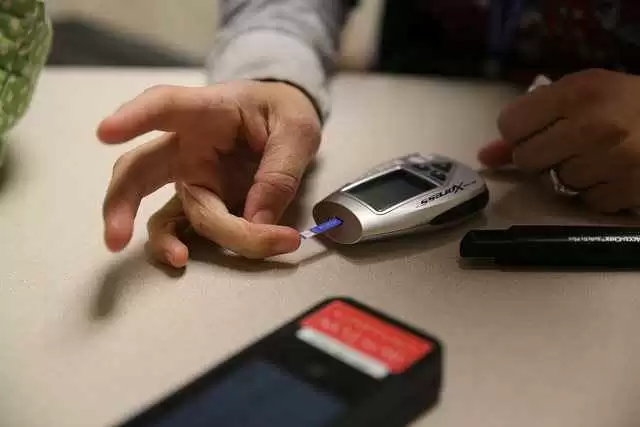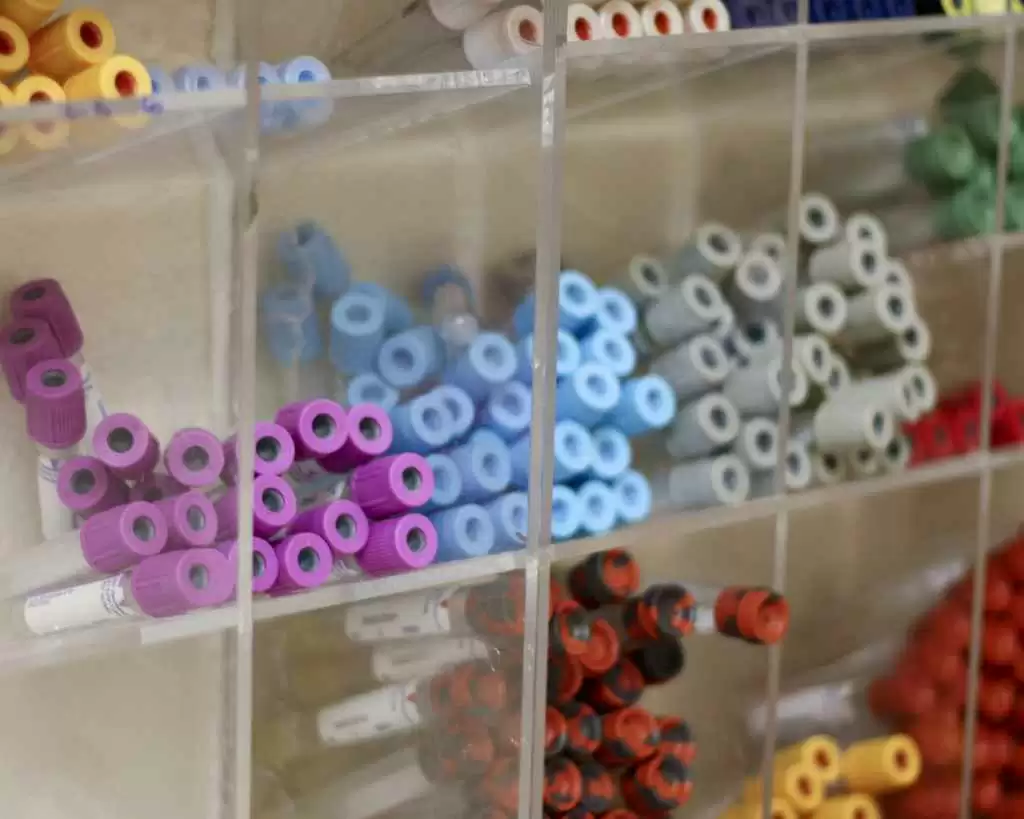
Celiac.com 11/11/2017 - (NOTE: This article is from 2012 and is being made available as Celiac.com rolls our past issues of Journal of Gluten Sensitivity) It's just like being a little kid with a super sore throat and your mom taking you to the doctor to get a test for strep throat. The doctor swabs your throat with two sticks to find out what nasty bacteria is camping out. In just moments you've got a diagnosis of strep throat and can start antibiotics to miraculously make the pain go away. You go home with a prescription, get in bed and eat mom's homemade chicken rice soup until you feel better in a couple of days. How cool would it be if getting diagnosed with celiac disease was this easy?
The wonderful news is that we're getting closer to having a test that will diagnose celiac disease with just a simple prick of a finger and a 10-minute wait. The CeliacSure Test Kit measures (anti-tTG) IGA antibodies from a fingertip blood sample. It works by taking a small drop of blood, mixing it with a buffer and applying the mixture onto a test cartridge. Within moments two red lines appear if the test is positive, while only one line appears if the result is negative. And, you can take the test at home without ever getting out of your pajamas!
Celiac.com Sponsor (A12):
"The test kit is a point-of-care, at-home test that's very similar to reading results of a pregnancy test," said Dr. Daniel Leffler of the Celiac Disease Center at Beth Israel Deaconess Medical Center in Boston. Dr. Leffler, a gastroenterologist by training with a background in nutrition, has a long-standing interest in celiac disease. Several years ago he teamed up with Dr. Ciaran Kelly and Dietitian Melinda Dennis to found the Celiac Disease Center at Beth Israel Deaconess Medical Center where they focus not only on providing top notch patient care, but also on high level disease research. The latest project: studying the efficacy of the CeliacSure test for celiac disease diagnosis.
Dr. Leffler said his team got involved with the finger prick test study because they feel it's important to take down barriers to patients getting diagnosed with celiac disease. "We do a lot with educating other medical providers about offering in-clinic testing, but I think it's really important to put a tool in the hands of the people."
"We've teamed up with the [marketers] of the test kit at GlutenPro/Biocard CeliacSure Test to see how effective this test is in the USA. We're providing 2 kits per family to use on first-degree relatives of people with celiac disease. To qualify, participants in the study must not be on a gluten-free diet. We send them the test kit to take as well as a survey about their ability to use and understand the test. The goal is that this small study comes out favorable [sic] so we can move on to large scale studies that will compare the finger prick test to the gold standard laboratory serology testing."
Dr. Leffler says he's really excited about the potential of this point-of-care test because it will "allow us to reach a population that might not otherwise come in to get tested, mainly first degree relatives of patients already diagnosed with celiac disease."
It's important to note that right now the CeliacSure test is only for research purposes, not actual diagnosis. It is available in Canada and other countries, but it's still under evaluation here in the United States. And, while the strep throat analogy is a great way to think about how this test will work, it's extremely important to understand that if you get a positive result with the CeliacSure test, do not start a gluten-free diet until you have followed up with a doctor to confirm the diagnosis.
As with all medical studies there's some fine print you need to know about. Participants in the study must meet all of the following criteria:
1. Over the age of 18
2. A first or second degree relative with celiac disease
3. Not previously diagnosed with celiac disease
4. Not on a gluten-free diet or low-gluten diet within the past 3 months
5. Able and willing to self administer the test, complete a short survey form and return both in the envelope provided
6. Willingness to have follow up medical evaluation in the event of a positive test
7. A resident of the United States
Listen to a full interview with Dr. Leffler about the CeliacSure study on the Hold the Gluten Podcast (http://traffic.libsyn.com/holdthegluten/050_HoldTheGluten-05Apr2012.mp3) with Vanessa Maltin Weisbrod and Maureen Stanley now! And, if you would like to participate in the study, please contact Dr. Toufic Kabbani at celiac@bidmc.harvard.edu or by phone at 617-667-0528.






Recommended Comments
Create an account or sign in to comment
You need to be a member in order to leave a comment
Create an account
Sign up for a new account in our community. It's easy!
Register a new accountSign in
Already have an account? Sign in here.
Sign In Now